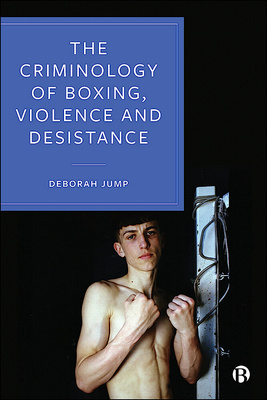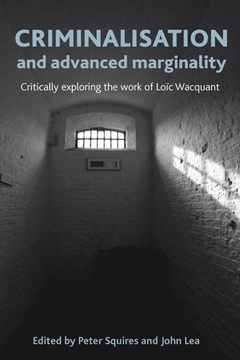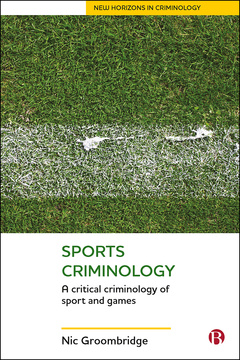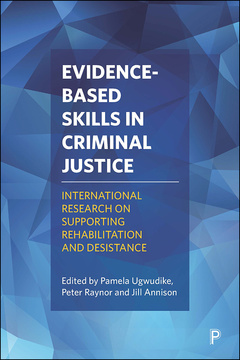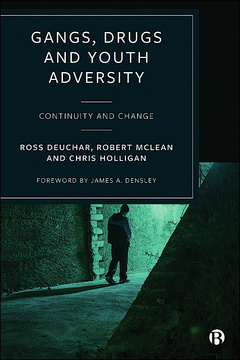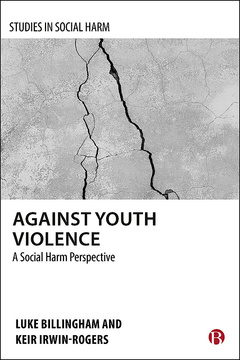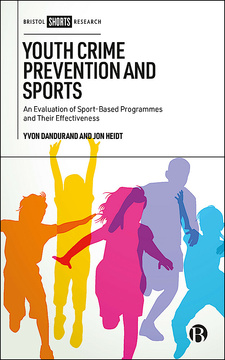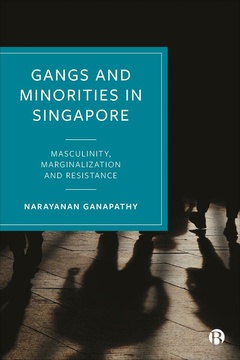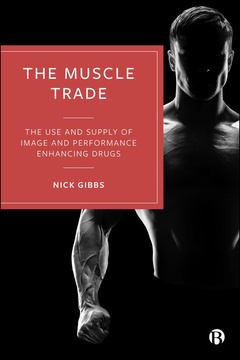The Criminology of Boxing, Violence and Desistance
By Deborah Jump
Published
Apr 7, 2021Page count
220 pagesISBN
978-1529203295Dimensions
234 x 156 mmImprint
Bristol University PressPublished
Apr 1, 2020Page count
220 pagesISBN
978-1529203240Dimensions
234 x 156 mmImprint
Bristol University PressPublished
Apr 1, 2020Page count
220 pagesISBN
978-1529203288Imprint
Bristol University PressPublished
Apr 1, 2020Page count
220 pagesISBN
978-1529203288Imprint
Bristol University PressIn the media
'Boxing, Violence and Desistance' in BSC Podcast
Can the boxing gym be recognised as an effective space for supporting desistance?
Exploring the psychosocial manifestations of boxing, this enlightening study reviews conflicting evidence to determine boxing’s place in the criminal justice system.
Drawing upon the empirical insights, with case studies of participants’ backgrounds and their motivations for taking up the sport, Jump measures the value of the discipline, as well as the respect and fraternity that some claim boxing provides for young men. This is a perceptive addition to the debate about sport’s role in criminal desistance that delves deep into themes of masculinity and violence.
"Jump's text raises some important questions about ‘how’ boxing is meant to help with violent crime, and the limitations of just funnelling violence into a specific environment without the ability to transform it." Ephemeral Digest
''Deborah Jump presents unique insights that challenge previous thinking on the transformational potential of boxing for violent men. This is a first-rate book; a must-read for anyone interested in life-course criminology, gender, sport and criminal desistance.'' Ross Deuchar, University of the West of Scotland
''This book has some great stories from the inside. Jump offers a detailed critique and makes the case for changing masculinities and transformations in the dynamic relationship between boxing and criminal behaviour.'' Kath Woodward, The Open University
Deborah Jump is Senior Lecturer in Criminology at Manchester Metropolitan University. She has over fifteen years’ experience of working in youth justice as both a practitioner and service manager. She is the Head of Youth Justice at the Manchester Centre for Youth Studies and was previously the recipient of a Winston Churchill Memorial Fund evaluating the impact of sporting programmes on communities in the USA.
Introduction
Boxing as Sports Criminology
The Appeal and Desistance- Promoting Potential of Boxing
The Case of Frank: Respect, Embodiment and the Appeal of the Boxing Gym
The Case of Eric: Self- Violence, Boxing and the Damaged, Emasculated Body
The Case of Leroy: Shame, Violence and Reputation
The Appeal of the Boxing Gym
The Desistance- Promoting Potential of Boxing
Discussion







